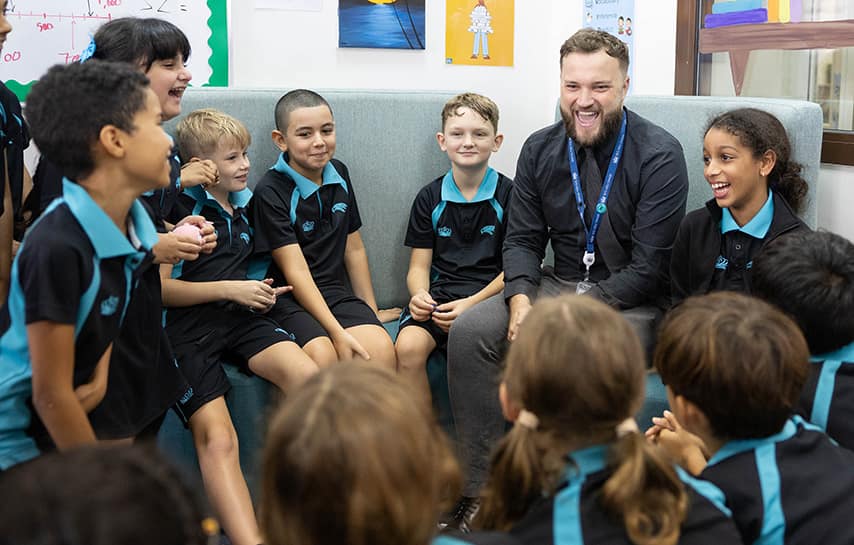We all notice it when we sit down in a restaurant or wait for the train: people sitting on their phones, making limited social connections. Young people feel increasingly lonely while using technology overwhelmingly. This worrying trend is evident in schools as well, where students struggle to balance their online and real lives—a balance that social media platforms are not designed to support.
This concern isn’t new, but it’s becoming more urgent. Increasing rates of anxiety and depression among young people are no longer abstract statistics; they are affecting families everywhere. The widespread use of smartphones since around 2012 has been linked to declining academic performance and increased mental health issues, a trend exacerbated by the COVID-19 pandemic.
Our current approach to childhood, dominated by screens, may be contributing to an increase in mental health issues.
At The British International School Abu Dhabi, we believe change is possible, as parents, educators, and the children themselves recognise the need for it. To support parents in reclaiming control over their children’s screen time, here is a four-point plan to foster healthy smartphone use:
- Enhance Learning
Recommendation: Ban phones in schools.
Reason: Research indicates that removing smartphones from the classroom improves student test scores. Countries like the UK have enacted legislation to support this, and others are following suit. Distraction-free learning environments help students focus and perform better academically.
- Protect Sleep
Recommendation: Ban phones in bedrooms and enforce a no-device policy after 9 PM.
Reason: Adequate sleep is crucial for children’s health. Studies show a strong association between media device use at bedtime and poor sleep quality and quantity. The American Academy of Sleep Medicine recommends that children aged 6 to 12 should sleep 9 to 12 hours per night, and teenagers should get 8 to 10 hours.
- Encourage In-Person Connection
Recommendation: Promote device-free time among kids.
Reason: Personal interactions are essential for emotional and social development. Encourage activities like cooking together, watching a movie without texting, or going for a walk without devices. Model these behaviours at family gatherings to reinforce the importance of real-world connections.
- Increase Physical Activity
Recommendation: Ensure kids engage in regular exercise.
Reason: Physical activity benefits both the body and mind. Encourage activities like biking, playing sports, dancing, or any form of exercise that gets them moving. Exercise is a powerful tool for maintaining mental and physical health.
While not everyone agrees on the extent of social media’s impact, moderation is key. A balanced “media diet” allows for healthy development and well-rounded lives. Implementing this four-point plan can help mitigate the negative effects of excessive screen time and support children in thriving both online and offline.
By enhancing learning environments, fostering better sleep habits, encouraging in-person connections, and promoting physical activity, parents can guide their children towards a healthier relationship with technology. This proactive approach, despite potential resistance, will ultimately benefit their well-being and future success.

